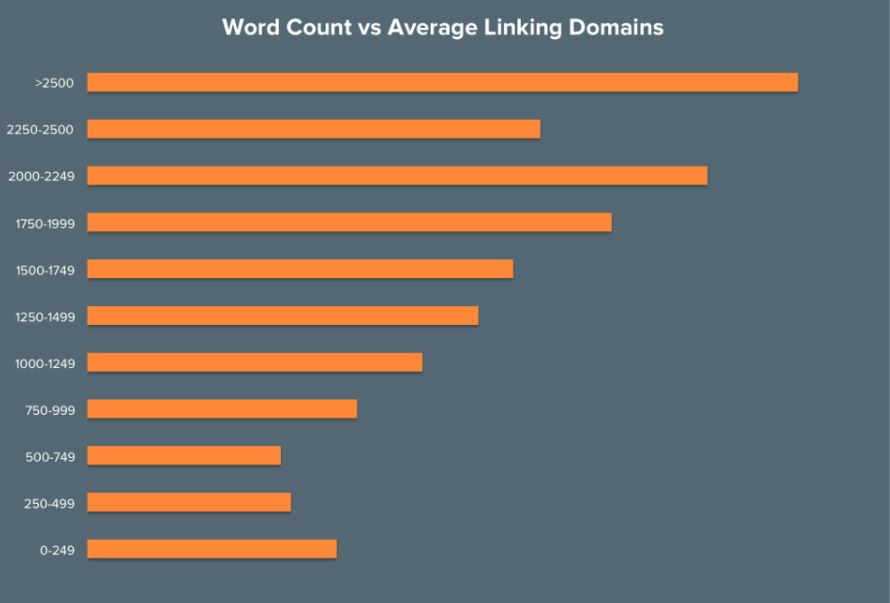
Law firms are undergoing a much needed digital revolution as the impact of Covid-19 draws attention to just how important content writing for law firms is when it comes to generating new clients.
However, as more and more law firms wake up to the realisation that high quality content is key to building an online audience, competition also increases. This is leading many law firms to wonder what they need to do to create legal articles that stand out and deliver results.
In this article, we’ll explore why content marketing is so important, how to come up with great article ideas and the tips and tricks you can follow to write the perfect content for your law firm.
Article Contents
Why Is Legal Content Important (Key Statistics)
If you’re reading this blog, it’s likely that you already believe that writing good articles for your law firm’s website is important. However, what may be less clear is exactly why it is so important.
The reality is that, in digital marketing, a lot of businesses only do something because a bigger competitor is already doing it. This is particularly the case in social media, where I’ve lost count of the number of firms that have come to us asking for a social media strategy but are unable to tell us exactly why they want one.
Alternatively, you may be considering investing time or money in creating online articles or blogs because your firm is becoming more digital as a result of COVID-19 and hey, what kind of digital company doesn’t have a blog?
Deciding to start writing legal articles for your website because someone else is doing it or because you think it’s the done thing is a bad idea. So, if you’re in that space where you’re not exactly sure why you need to be creating digital content for your law firm, here are some stats to put your mind at ease.

59% of people look for a lawyer on their own. [Clio]
Referrals have historically been the way most people begin their search for a law firm, but that doesn’t mean it’s the only way. In 2017, research showed that 37% of people use an online search engine (like Google) to find a lawyer. By 2019, the percentage of people that looked for a lawyer on their own had shot up to 59%. And that’s before Covid kicked off, so imagine what that number looks like now.
43% of people use Google to research law firms. [Martindale-Avvo]
If you still think referrals are your only way forward, this 2019 study throws cold water on that idea, highlighting that 46% of people who receive a referral still went on to conduct their own online research. It also found that Google was one of the top channels used to conduct online research at 43%. Creating content is a tried and tested way of generating more traffic through Google.
70% of people want to understand the legal process. [Clio]
If you’re relying on dazzling your leads with big legal words so they’ll hire you, I’m afraid you’re in for a harsh lesson. Although demonstrating expertise is valuable, it’s even more important that your website visitors understand exactly what to expect from the legal process. Legal articles and blogs provide the ideal way to make complex legal concepts and processes easy to understand.
What Do These Statistics Mean?
These are only three stats that look at how people with legal needs are finding law firms. If you have 15 minutes to kill, I’m sure you could find a lot more. To be honest, though, these three statistics tell the whole story. They illustrate that:
- The number of people doing their own research into legal processes and law firms is growing. At the same time, while still important, the reliance on referrals is shrinking.
- When people are conducting their own research, Google (and wider search engines) stands out as the top digital channel for finding information.
- Online users are looking for information that helps them understand their legal need and the process that a law firm could undertake to help them.
Each one of those points is something content marketing is designed to tackle. Not only does regularly writing articles and blogs help you generate rankings and traffic on Google, but it’s also the perfect medium to deliver valuable information to your users. That’s why content marketing and law firms make such a pretty couple.
Choosing A Legal Topic To Write About
Now, I understand that, if you’re reading a blog about writing a blog, you might want to jump straight to the information about writing. I mean, chances are you already know what you want to talk about, right?
Well, slow down a moment because I know from experience that your first idea isn’t always your best. If I may, let me indulge in a little reminiscence – it’s not about a law firm, but bare (bear? I can never remember which one is right) with me.
Back when I was a bright-eyed and bushy-tailed marketer, I decided that I wanted my own blog. Since I was learning a lot about what not to do, I thought I could write some pretty engaging stuff about some of the mistakes I made and the pitfalls I fell into (there were a lot). It’s a pretty solid concept with a clear audience.
The other thing I wanted to do with this site was to practice my keyword research. So when I started writing articles, I planned what I’d produce around keywords with different levels of competition. I wanted to see how far good content could take a brand new website and what I could produce in the way of Google rankings. I also obviously didn’t have enough stuff to do on weekends.
Cut forward a month or so and I started to see a few rankings, one of which was on the second page. I returned to this blog and added another thousand plus words. What happened? I made it onto the first page. Considering my website was brand new, had no investment and was really pretty amateur, I was really happy. I’d even go so far as to say I was stoked (which is a word I have never used and hope to never use again).
[sc name=”blog-template-cta”][/sc]
The problem, I later came to realise, was the keyword I’d managed to rank for was totally irrelevant to my audience. I can’t remember exactly what it was, but it had something to do with some extremely niche keyword research software.
What this anecdote is designed to demonstrate is the fact that it’s really easy to forget why you’re writing articles, in short, the goal you’re trying to achieve. In my case, I wasted hours writing a blog that none of my audience would ever read – I’d hate to see the same thing happen to you.
If your goal is to generate website visitors from Google, then at least a portion of your topics need to be broad enough that they can rank for relevant keywords. If you want to build a relationship with your reader, then you need to pick article topics that can be simplified to a point where they are understandable but still valuable.
Don’t assume that your first article idea is your best idea. That’s a surefire way to waste a lot of time writing content that you’ll later look back and hate (again, a lesson I learned the hard way). Instead ask yourself these questions.
5 Questions To Ask Before You Start Writing Your Blog
1. Do you know who you’re writing for?
While this may seem obvious, not knowing who your audience is is an all too common issue. This is because most businesses define their buyers by the product they purchase. In legal, that translates to “we’re a family firm, so our readers are people that need a family law firm”.
Not only is that incredibly vague and unhelpful, but it can easily lead you in the wrong direction. If the majority of your clients are stay at home mothers, the content you write needs to target them, not high-flying businessmen, because they’ll have a very specific set of problems and concerns your content needs to speak to.
This is called developing a buyer persona, which you can read about more here.
2. Are you addressing a problem your readers face?

If you do know who your readers are, your next step is to confirm your topic speaks to one of their challenges. Again, this may seem obvious, but that’s because most law firms only scratch the surface.
To continue with our previous example, you may think that a stay at home mom will want to know about legal costs because she doesn’t have her own income. This is true, but it’s what we’d call decision-based content, in that it’s only relevant to people who are ready to speak to a law firm.
Awareness and consideration-based content looks at your audience’s challenges far earlier, potentially before our stay at home mom even knows she wants a divorce. Exploring some personal topics like how you check if your partner is hiding assets or what to do during a trial separation can be a great way to build trust with your readers.
This is called the buyer’s journey, which you can read about more here.
3. Can you deliver practical value?
This should be obvious but it’s not so let’s just race through it. If you don’t think that you can provide any practical value to your reader then don’t bother writing the article.
Too many law firms write the same blog over and over again. You know the one, where they pick an area of law, say it’s really complex and tell you to call them.
I appreciate that you can’t give actual legal advice and have to include a few disclaimers, but at the very least reward people for taking the time to read your article. Make sure they gain genuine insights into a topic and are given practical steps they can take to improve their situation.
4. Is your content timely or evergreen?
This point has less to do with your individual article and more how it fits into your overall content strategy. In all likelihood, the article you write will either be timely or evergreen.
Timely content is stuff that is very relevant now, but will quickly go out of date. It’s great when you already have a digital audience that you want to wow with some very up to date insights. A lot of law firms attempt this by writing articles on recent case law, but for most this just ends up in a sea of articles that say very similar things. If you want to write timely articles, try looking at regular news stories with a legal focus.
Evergreen content is the opposite. It tends to cover topics that will be relevant for a long time. This is what most law firms without much of a web presence write because it’s better for ranking for keywords and generating traffic. The drawback is that evergreen content can often be more generic, which brings us onto the next question.
5. Can you make your content unique?
Before we look at uniqueness, let me just quickly contradict what I’m about to say. There is a time and a place for generic content. You might find a saturated topic and say “I’m going to write about this topic better than anyone else”. That’s a legitimate strategy and if it works, it can generate a lot of traffic for you. In general, though, you’re more likely to have success if you have your own spin.
Most people who research on Google skim articles (more on this later) which means they can visit a lot of websites in a relatively short amount of time. If you don’t have any way to stand out, it’s unlikely that readers will engage with the rest of your site and, ultimately, give you work. That’s why video marketing is all the rage, it’s one way to grab attention.
There’s a lot of other ways to make yourself unique, though. It could be your topic choice, your tone or the sheer amount of valuable information you’re willing to give away.
Recruiting Your Best Legal Writer
Who you choose to write your legal content can have a major impact on the success of your content marketing efforts. Usually, your options for writers are as follows:
- Internal marketing personnel
- Legal personnel, such as fee-earners or consultants
- External marketing personnel
Let’s explore the pros and cons of each.
Internal Marketing Personnel
When law firms start thinking about writing regular legal articles or blogs, a lot plan to use an internal marketing professional, since, on paper, it’s the cheapest option. I actually agree. In fact, I’d go one step further and say it’s not just the cheapest option but it’s the most cost-effective option and trust me, in marketing parlance, that’s about the biggest compliment you can give.
The problem, though, is that the perception of how easy these articles are to write is so wildly off, that internal marketers are often given the task of writing articles without anywhere near enough time or support.
Plus, according to a 2019 survey, only 47% of law firms actually have a marketing budget (okay, confession time, that’s an American study but, honestly, I don’t think we’re any better over here). A lot of law firms have quite an ad hoc approach to marketing and priorities quickly change.
Writing articles and content marketing needs consistency to work, so, while internal marketing personnel are, in theory, the best choice, a lot of law firms simply don’t have the structures in place to let them be successful.
The final point I’d make is one about law firm culture, so only you can judge whether this applies to you. The way a lot of firms are structured is with individual departments run by very experienced folk who know a lot about the law and nothing about writing marketing content, which, I suppose, is fair enough.
The problems arise when key figures within the firm never buy into the idea of someone writing legal articles without a law degree and even actively look for issues to prove it won’t work (it totally will). This is one reason why there are marketing professionals working in law firms across the country that want nothing to do with writing legal content. They’re too concerned that it’ll be immediately shot down.
A lot of lawyers don’t have this view, but if you think you have people in your firm that won’t get on board with articles unless they’re written by them, you need to tackle this before you roll out the content waggon.
Legal Personnel

Where a law firm doesn’t have its own marketing team or isn’t confident that its team can write legal content, they often turn to their own experts. Again, this is a pretty logical choice. You can be confident that the article produced will be factually correct, which means it won’t need much editing and is unlikely to create too much additional work.
The problem I see with using actual legal professionals to write your content is twofold.
Firstly, lawyers have a much higher billable rate than content writers (unfortunately for me). That means you’re massively overpaying for your content. Now, of course this isn’t really the case, because they (usually) work for the firm but this plan only works when your fee-earners have spare time.
As soon as their casework increases, their capacity for producing marketing articles plummets. This means that you never get any consistency in your content production, which isn’t a good thing if content marketing is one of your strategies for increasing revenue. We call this the legal content bottleneck.
Secondly, the unfortunate truth is that a lot of legal marketing content written by lawyers isn’t that good. Of course, the knowledge of the law is there, but often it lacks the structure or tone required to be truly engaging. While it’s not always the case, lawyers often write for lawyers, which is great if your audience are lawyers, but less useful otherwise.
There are other reasons I could look at about why legal professionals aren’t great at writing marketing content, but since the person reading this probably is one, I’ll leave it there.
External Marketing Personnel
Okay, I know this is the point where you’re expecting the big pitch, so let’s start with the negatives. Outsourcing your content writing and wider marketing efforts is an additional expense. I’d argue that keeping it in house is also an expense because time is money, but I get it, outsourcing adds another number into the cost column.
You also don’t know what you’re getting when you outsource. I’m the first person to admit the digital marketing industry has an issue with it’s lack of accreditations or regulations (in that there are none). Marketing spend represents a big outlay for any law firm, so you want some measure of assurance that you’re going to get something back for your money.
This is actually where the benefits of outsourcing your content to an agency (or freelancer) begin. The first thing an external marketing expert should do is give you an idea of what to expect out of your content marketing. Every business wants their marketing to produce revenue but for some law firms, that’s not going to be on the cards for a while if your only activity is organic content writing.
Don’t get me wrong, organic marketing is the most cost-effective way of generating leads, but not from day one. It’s a methodology that the biggest law firms have used as one of their foundations for success but it’s also a practice that rewards time consistency.
By reviewing the unique digital make up of your business, a good content marketer should be able to give you an idea of what results to expect in the first year. Then it’s up to you to decide if the long-term benefits are worth the investment.
The other reason to consider outsourcing is if you don’t have the technical expertise to plan, put together and evaluate your legal articles or blogs. Most people think of writing as an art, but in this context it’s really more of a science. This is most obvious when looking at search engine optimisation.
It’s true that you can hire your own copywriter, but the cost of doing so quickly grows when you consider the technical marketing knowledge and experience of writing for legal they need. In many cases, the best option is to outsource.
Practical Tips For Writing Legal Marketing Articles
You made it. You’ve got to the part of the blog that actually provides tips on how to write great legal marketing articles. Well done.
Hopefully you thought long and hard about the topics you want to tackle in your articles. You know who you’re writing for, are prepared to address their challenges and provide practical value and have worked out what will make your content unique.
If you’re planning to write content yourself, read on. If you have an internal team that’s going to be doing the writing for you, still read on but send them this article as well (and this one, and this one). If you’re outsourcing your content writing to someone that isn’t Strawberry Forge, feel free to use tips below to test their metal.
Conducting Keyword Research
At Strawberry Forge, once we have an idea for a blog, our next step is always keyword research. If you’re not sure what a keyword is, it’s simply the term a person types into a search engine like Google.
That means anything can technically be a keyword but, in reality, people use a consistent set of search terms, aka keywords. Software exists to highlight what those keywords are, so you can understand exactly what your target audience is typing into Google (or other search platforms) and create content tailored to these topics.
Do you need to conduct keyword research?
I want to be very clear that keyword research is not inherintly necessary for successful content marketing. In fact, I have no doubt that a lot of law firms have seen great results from writing articles without first conducting keyword research.
However, content marketing takes a long time to deliver results for most law firms. For firms that have never really invested in their digital presence, it can take years to start generating clients solely from article writing or blogging. That’s why content marketing takes a lot of patience and a little bit of faith.
By conducting keyword research, you’re more likely to create content that ranks on Google and delivers results quicker. By identifying and tracking keywords, you can also get a better idea of whether your content marketing is working – the more keywords your ranking for and the higher your rankings, the better your content marketing strategy is performing.
So, if you have total faith in content marketing and are ready to invest in it for months and years without questioning whether it’s working, then by all means, give conducting keyword research a miss. If, on the other hand, you’re like the rest of us and want some assurance that your article writing is worth something, keyword research is a must.
Tips for finding the best keywords
Being a great keyword researcher is something that takes experience, that is why many law firms choose to outsource their content writing if they don’t have the required skill set in house. That said, if you’re determined to conduct your own research, here are our top tips:

- Get some software: Keyword research is impossible without software to show you your options. Popular softwares are SEMrush (our personal favourite), Moz or Ahrefs but these all have a cost. If you want to conduct keyword research on a tight budget, consider using Google’s Keyword Planner tool – it’s designed for paid advertising but can still deliver some great insights.
- Know your domain authority (DA): DA is the primary metric used to determine what you can and can’t rank for. Use one of the tools mentioned above to get a sense of our DA before you start looking for keywords – the bigger the better.
- Start with small volumes: Your keyword tool will estimate how many times that keyword is used each month (pretty cool) and you may be tempted to target some big numbers. Remember, the larger the keyword volume, the tougher the competition for rankings so start with low volume keywords instead. It’s better to rank for a small keyword, than none at all.
- Look for long-tail variations: Long-tail keywords are terms that include more words, let’s say four plus. These typically have lower volumes, but are also easier to rank for because they are more niche.
- Look for questions: Sometimes you can make article writing easy by finding a ready-made title in your keyword research. Look for keywords that are also questions, they’re usually long-tail and often easier to rank for.
- Identify primary and secondary keywords: Don’t just find a primary keyword for your title, also find related keywords that you can include in your subheadings.
General Blog Writing Tips
Start with your title
Clearly, your title needs to grab the reader’s attention. This is what will determine whether they’ll visit your article from a search engine, social media or other channel. To come up with a good title, use these tips:
- Understand different title types: “list” titles, “how to” title and “question” titles are three common title types that provide different pros and cons. There are loads of other types of title, so learn what you have available to you.
- Demonstrate value: You only have moments to convince your reader that your article can be of use to them. Therefore, you need to be demonstrating what the reader should get out of your article in the title.
- Be honest: People click on clickbait for the great title, but leave because the content of the article doesn’t match what they were promised in the title. Make sure you don’t oversell your article in the title and underdeliver on the content.
- Incorporate a keyword: You spent all that time finding a great keyword, so make sure you use it. Including a keyword in your title is great for SEO and a good way of making sure your title aligns with the needs and challenges of your target audience.
- Use negative titles sparingly: A negative title can be a great way of creating a sense of urgency and getting your article written. Just be careful not to use this tactic everytime, overwise your blog feed may appear cynical and depressing.
Don’t be dense
It doesn’t matter how much time and effort you put into crafting a beautiful piece of writing, it’s not going to stop a large number of your website users skim-reading it. This is the way most people absorb online content and can result in multiple eye movement patterns, the F-shaped pattern being one of the most common.

Patterns like the one above are bad for business, as they mean your readers miss important pieces of information in your content, meaning your article delivers less value. Still, while you can’t control how users read your content, you can minimise the damage caused by skim reading. Here’s how:
- Include key information in your first two paragraphs: It’s likely that your readers will actually read the first couple of paragraphs of your article, so include the key points you want to make there.
- Use subheadings: Break up your content with subheadings that draw attention and clearly signpost what that section of your article is about. Where possible, include the most important elements of your subheading within the first few words.
- Avoid large clumps of text: You may be used to writing large paragraphs during the rest of your dat, but when it comes to marketing articles, keep your paragraphs short (max two or three sentences)
- Include different types of content: Bullet point lists, imagery, videos, pullout quotes and infographics are all different ways of delivering ideas that draw attention and keep your content from looking stale.
- Use simple language and cut irrelevant content: Don’t over complicate your topic to try and sound intelligent. If your article starts to sound like a piece of academic writing, it’s not going to work for marketing purposes.
Write longer Content
Although a lot is said about the short attention spans of modern digital audiences, you should let that influence the length of your article content. In legal, taking the time to explore a concept in depth goes a long way to building trust with your audience, so we recommend every article you write for marketing purposes is at least a thousand words. Other benefits of longer content include:

- Better rankability: As competition for keyword rankings increase, search engines like Google are prioritising longer content. The graph above from a study by SerpIQ demonstrates just how much of an impact length has.
- Increased dwell time: Dwell time is the amount of time a user spends on your website. It’s also a key ranking factor as it highlights to Google whether your website is worth spending time on. The longer the content, the longer the dwell time.

- More backlinks: Backlinks are a key way of increasing your domain authority, so it’s in your interest to gather as many as possible. The above graph from HubSpot shows how content length and backlinks are linked.

- Social sharing: If you want your content to make a splash on social then you need to care about writing longer pieces. This study from Niel Patel’s Quicksprout found a clear link between content length and social shares.
Although longer content has more value. Be sure you’re not just including filler words to bump the word count. Write longer content but make sure each part is still to the point and valuable.
Optimise for SEO
You need to optimise your blog for search engines. If you’ve researched specific keywords, it’s time to use them. If you haven’t conducted keyword research, think about the search term you’d like users to Google to find your article – that’s your keyword.
Below is a list of all the different elements of your blog you’ll need to optimise.
- Meta title: This is the title that Google will read, so make sure you include your keyword. You should always try to use the exact keyword, which means no reordering or the words or tweaking the grammar. If you do, you’ll be targeting a new keyword. Also, keep your title to around 65 characters or less, otherwise Google may cut off the end, which is just a waste of words.
- URL: Probably the most important element of your article that you need to optimise. Again include the exact keyword, but feel free to remove filler words in the rest of the url. The most important thing is to keep your url simple enough for a user to understand.
- Meta description: Although including a keyword in a meta description doesn’t impact rankability, it’s still important for optimising your article, as including a keyword may make your article more appealing to search engine users.
- Article Title: In some cases, your CMS may allow you to set one title for Google and one for the article page itself. You may change the title on the latter if you want it to be a bit longer but don’t make it drastically different – you don’t want users to think they’ve ended up on the wrong page. Make sure your title is enclosed in H1 tags (and is the only one.)
- Subtitles: Subtitles are a great opportunity to include some of your secondary keywords. Just be sure your subtitles are enclosed in H tags (2-6), instead of just being larger/bolder versions of your paragraph text.
- Opening: As we mentioned, it’s critical that you include your key points in the opening of your article. It’s also worth including your keyword in the opening couple of sentences.
- Internal links: Internal linking is often forgotten about, but is important for allowing search engines to see how your article relates to other content on your site. Include links within your article to related blogs or relevant pages such as service pages.
- Image alt-tags: Where you include images in your content, you need to set your alt-tags (also known as alt-text) when you upload them to your CMS so Google knows what they are. A good alt-tag should describe the image. If possible, it’s also great to include your target keyword, but not unless it relates to the image.
- Don’t keyword stuff: We’ve spoken a lot about where to include your keyword, so you might be thinking it has to be everywhere. In fact, outside of the sections highlighted, you don’t want to be overusing your keyword, as this can damage the readability of your article. For the bulk of your content only use your keyword with the opportunity to do so comes naturally and don’t worry about using the exact wording.
Optimise for conversion
The discussion about the benefits of content writing for law firms is often around generating more traffic to your website. This is undoubtedly true, but it’s worth remembering that your marketing should also be built to deliver leads.
For that reason, part of writing the perfect legal article is ensuring it is optimised for conversion. This means the people who read your article have a higher chance of viewing more pages on your website, submitting on a form or picking up the phone to call you. You can improve the conversion rate of your blogs and articles in a few ways.
- Include internal links: We touched on internal linking earlier, but suffice to say that it’s just as important for CRO (conversion rate optimisation) as it is for SEO.
- Add CTAs: CTA stands for call to action, and refers to anything that prompts your website users to make an action. CTAs are usually found in button format, but are particularly effective on blogs when used as a clickable image that directs users to a conversion point. Below is an example of a picture CTA.
[sc name=”blog-template-cta”][/sc]
- Add a sidebar: Having a sidebar on your blog gives you another area to include useful links, forms or contact information. Make your sidebar sticky and you can ensure key information is always obvious while your users read your article.
What To Do After Publication
Promoting Your Content: Putting the Marketing in Content Marketer
Once you’ve published your content on your website, you may think that’s job done. Unfortunately, you’re not quite finished yet.
Unless your law firm already has a significant digital audience, your fantastic new legal article is unlikely to generate much attention without a little help. It may be months before it ranks for it’s target keyword and even if it does, one article in isolation is unlikely to generate enough website visitors to justify the investment.
So, if you really want your article to be seen, you need to think about what you can do to generate an audience. Here are a few ideas:
- Leverage it on company social media accounts: Every time you write an article, create a series of social media posts that promote it. We recommend writing three posts for each platform you use, allowing you to share it on the day of publication and again a week and then a month afterwards.
- Share on personal social media: many law firms have few followers of their company accounts, yet their individual staff have massive networks on sites like LinkedIn. Ask these staff to share blog leveraging posts to increase reach.
- Create an email newsletter: If you have a database of contacts that is GDPR friendly, create a regular newsletter showcasing your latest articles. These are often simple to set up depending on the software you use.
- Engage experts and influencers in the article: It’s hard to get an industry expert or influencer to share your content if there’s no benefit to them. Instead, when writing your article, reach out to experts for quotes or contributions. They’ll then be keen to share your article with their audience once it’s been published.
- Engage with the legal community: There are countless law-specific forums or sites that promote discussion. These can be great platforms to share your articles and create a new audience. Sites like Quora, Yahoo Questions or Reddit are the perfect place to start.
- Create paid ads: I offer this suggestion hesitantly, as you only want to use paid advertising to promote an article if you have a clear strategy on how you’re going to turn your readers into paying customers. Still, if you want eyes on your article quickly and have the budget, advertising can be a good way to go.
Evaluating Legal Marketing Article Success: Key Metrics To Monitor
In content marketing, consistency is everything. For that reason, you dedicate all of your writing time to creating new content.
Ensuring consistency is important, but at the same time, you should forget to review what came before and evaluate how successful your previous articles have been.
By doing so, you’ll be able to spot what does and doesn’t work for future articles, as well as identify which topics resonated best with your audience, so you can return to them again.
Of course, evaluating success will mean different things to different law firms. Some may be blogging to generate clients and revenue, while others may be more focused on promoting brand awareness.
However, whatever your specific goal, below are some key metrics you should be tracking for your articles.

Users (Google Analytics)
After three to six months, ensure you take a look at how many users have visited your article. Once you have that number, check when those users viewed your article. Did they all appear in the first month? Has there been a steady stream over users?
The ideal scenario is a growing number of users each month. Assuming you’re not still actively prompting the article, this will indicate the blog is generating its own traffic.
Organic users (Google Analytics)
Like the point above, check the number of organic users the blog has generated. Does the trend in organic users match the trend in total users? If it does, your blog is generating most of its traffic organically, a good sign that your content marketing strategy is working.
User behaviour (Google Analytics)
While reviewing your article in Google Analytics, pay close attention to user behaviour metrics such as bounce rate, pages per session, session duration and exit rate.
A high bounce or exit rate coupled with low pages per session and session durations will indicate that your content is not working for your users. You may want to return to this article and improve it.
Keyword Rankings (keyword research software, eg. SEMrush)
Depending on your keyword research software, you should be able to review your articles with regards to how many keywords they’re ranking for and what position those rankings are in.
Look first for your primary keyword, as this is the one you’ll want to evaluate first. Remember, though, a single blog that’s well thought-out and written can rank for hundreds of keywords.
It’s also worth remembering that very little traffic makes it to page two of Google. This study has the number at 11.96%, but I’ve seen other studies estimate lower.
When evaluating your keyword rankings then, look for ones that rank between positions 11 and 20. It’s these rankings that you may want to update your content for to try and push them onto the first page.
Conclusion
When it comes to content writing for law firms, creating the perfect legal article can take a lot of work. However, by following the steps and tips laid out in this blog, you’ll quickly start writing better marketing articles for your law firm.
Of course, time is money, so if you’re not sure you’re ready to invest your time into a legal content marketing strategy, it’s time to speak to an expert.
At Strawberry Forge, we offer a free digital workshop designed to help law firms work out how well they’re performing online. As part of the workshop, we’ll take you through the digital marketing tools available to you, as well as explore your online goals and how you can meet them.
For more information or to book your free digital workshop, click below.
[sc name=”blog-template-cta”][/sc]

